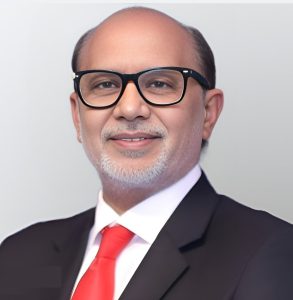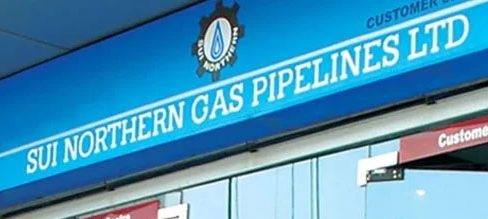
Muhammad Arif
A recent report in The News on 23 September 2025 exposed yet another episode of Pakistan’s bureaucratic farce masquerading as emergency engineering. The story of a 36-inch-diameter “temporary” gas pipeline—roughly eight kilometres long and laid along the M-5 Motorway near Jalalpur Pirwala, purportedly to restore gas supply after flood damage—reveals the depth of governance rot and creative corruption within Sui Northern Gas Pipelines Limited (SNGPL), to the tune of over PKR 500 million in this episode alone.
The country was reeling from one of the worst flood crises in its history. Punjab’s energy infrastructure had been severely battered, and SNGPL’s transmission network near Jalalpur Pirwala was among the worst hit. When the main gas lines floated due to flooding, a professional response should have involved engineering studies, safety audits, and coordination with regulators. Instead, in a race to impress visiting dignitaries, senior officials ordered the laying of a 36-inch pipeline right in the middle of the motorway—at a location where even the roadbed had partially collapsed.
According to an internal whistle-blower, every essential technical step was compromised: no proper welding per code, no radiography, and no hydrostatic testing. Yet the project was triumphantly declared a success before television cameras—a monument to haste and hubris rather than engineering. Out of adversity, the “creative minds” within SNGPL found yet another opportunity for enrichment. Instead of pursuing restoration with prudence, the floods became a stage for another deceitful project designed not to restore gas supply but to showcase action and extract approvals.
What makes this deception particularly egregious is a technical fact that has now surfaced: the 36-inch pipeline laid along the motorway could not physically connect with the existing flooded transmission network from either side. Both ends of the original line were submerged and displaced, rendering interconnection impossible. The so-called “emergency bypass” was therefore never intended, nor even feasible, to carry gas. It existed solely as a visual prop to mislead ministers, media, and the public into believing that restoration work was underway.
The project defied all engineering logic, ignored repeated technical warnings, and consumed about Rs 500 million in public funds. Yet it was hailed as a “technical success” during the ministerial visit—a mission achieved on paper. Reports suggest that appreciation letters were even issued by the Ministry, congratulating those responsible for the deception. Soon after the praise and photo sessions ended, the entire line was quietly dismantled—much like the ghost schools that appear only when inspectors arrive. The so-called “emergency pipeline” existed not to serve gas, but to serve optics.
This was not an isolated act of corruption. After the Bannu West–Wali Field pipeline project—which reportedly consumed over PKR 25 billion in the installation of an old, depreciated line through selection of a longest routine involving 250 Kms of 18” line rather than alternative routine of about 45 Kms which already existed —one might have expected lessons to be learned. Instead, SNGPL continued its pattern of “creative innovation” in misleading decision-makers, securing approvals for technically unsound schemes under the pretext of urgency and innovation. The Manga Store scam, involving roughly Rs 460 million and now under FIA investigation, further exposes this culture of deception. The same mindset underlies the Jalalpur Pirwala fiasco—an opportunistic misuse of a national crisis for self-promotion and to secure top management positions, while misleading the government into believing that restoration efforts were progressing.
During the Petroleum Minister and Secretary’s visit to Jalalpur Pirwala, officials reportedly presented curated briefings designed to impress. What the dignitaries witnessed was not a functioning system but a staged demonstration. Field engineers now admit privately that the line could never have been safely operated at the intended 800–900 psi. The Projects Department, backed by a non-technical management tier, bypassed both the Design and Operations divisions entirely.
Pakistan’s state-owned utilities are collapsing under the weight of such internal politics and institutionalised corruption. Appointments are made for loyalty rather than competence. The same officials rotate between projects and postings, learning little and leaving less. Technical staff with decades of experience are sidelined by ambitious generalists whose only skill is upward management. Dissenting notes vanish in files, and safety warnings are routinely ignored. Even the Managing Director’s office relies on selective briefings crafted to please the ministry rather than safeguard public interests and inculcate a culture of good governance.
A 36-inch high-pressure gas line operating near 900 psi is not an administrative matter—it is an engineering responsibility with life-and-death consequences. A rupture on a motorway alignment could wipe out infrastructure, vehicles, and lives within seconds. Yet such risks were shrugged off in the name of “emergency restoration.” The entire exercise epitomises a national pathology where ministries demand instant optics and state companies oblige with theatrical solutions – only to encash opportunities for corruption. The tragedy is not merely financial—it is moral. By deceiving the very institutions meant to ensure accountability, such actors make a mockery of governance itself. For them, performance means posing for drone footage beside an untested pipeline, not ensuring long-term system integrity.
Like many other mega-corruption projects of SNGPL, the Jalalpur Pirwala fiasco demands a forensic technical and financial audit independent of the company’s hierarchy. A joint inquiry, aided by PEC-registered pipeline experts or neutral institutions such as NESPAK, NUST or DNV (an international risk-management and assurance body), should determine who conceived, approved, and supervised the motorway-centreline alignment; what engineering deviations were made and by whom; how public funds were released and justified; and why a non-operational pipeline that was immediately dismantled for safety reasons was ever presented as a success story.
The rot, however, runs far deeper than the project itself. The present Chairman of SNGPL’s Board—the co-brother-in-law of the sitting Speaker of the National Assembly—along with other similarly connected board members, exemplifies how political patronage has corroded corporate governance in Pakistan’s public utilities. Reports indicate that the Chairman was recently provided with a brand-new BYD electric vehicle valued at roughly PKR 17 million, and has undertaken four family-sponsored foreign trips—to the United States, Italy, and most recently, Russia—under the pretext of attending gas conferences. Such excursions, financed from company funds, cannot be justified for non-executive directors under any measure of transparency or consumer accountability. These indulgences, drawn from a publicly owned public utilities, and ultimately borne by gas consumers, illustrate the pervasive culture of privilege, entitlement, and impunity that thrives under the prevailing regime of misgovernance—a phenomenon more accurately described as political capture.
In the end, the entire exercise amounted to nothing more than counting sea waves—a flurry of meaningless activity undertaken to impress rather than deliver. It symbolises a governance culture where motion replaces progress and slogans substitute for substance. Unless Pakistan’s public enterprises are re-anchored in merit, transparency, and technical integrity, every crisis will give birth to another spectacle of creative corruption—and its cost, once again, will be quietly dumped into the consumer gas-pricing shredder. The author is : former Member (Gas), Oil and Gas Regulatory Authority (OGRA), is a thought leader in energy, governance, regulatory, and economic policy reforms, and consumer rights advocacy. 📧 [email protected] | 📱 0333-5191381.
(Views expressed by writers in this section are their own and do not necessarily reflect ‘World News AM’ point of view)


